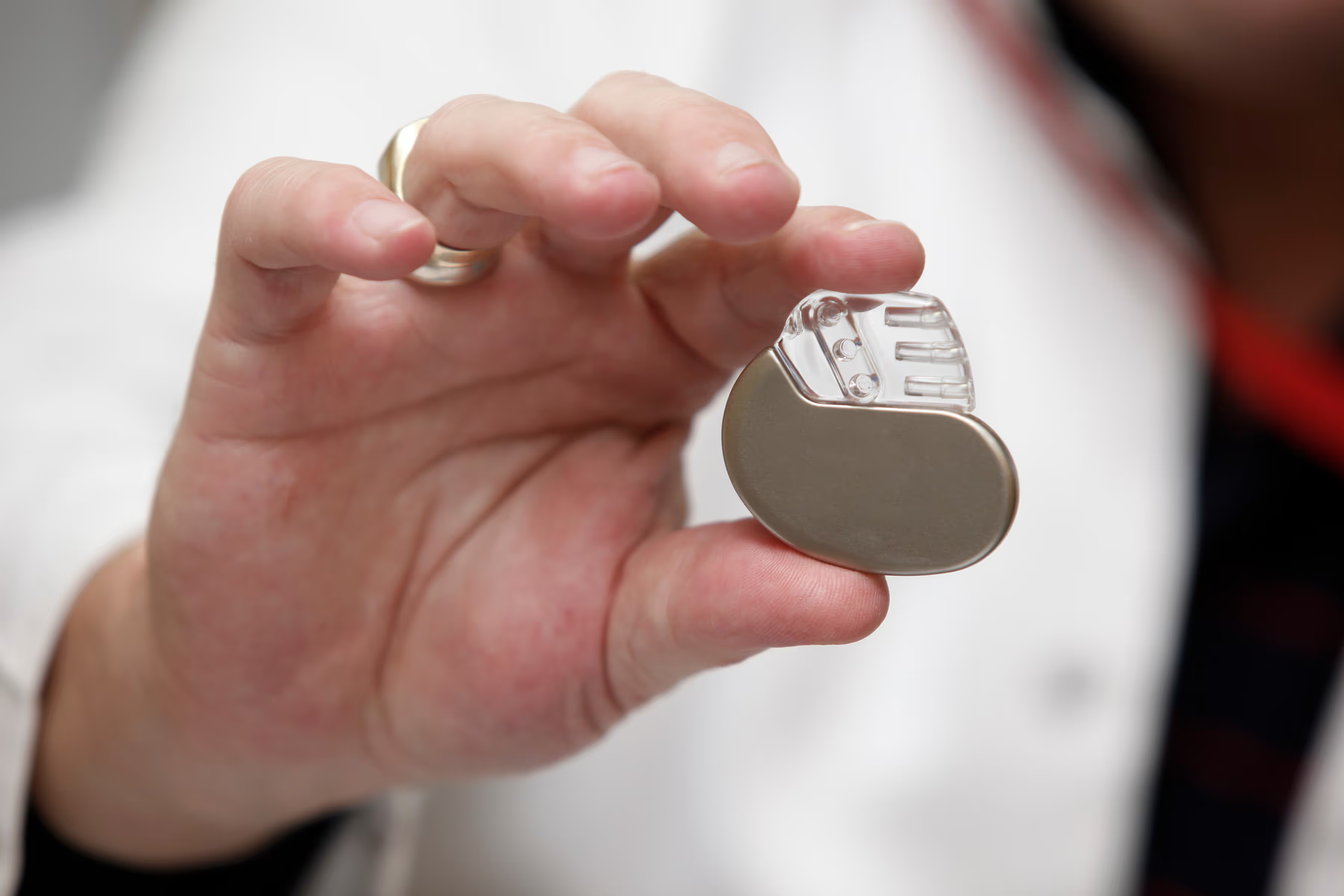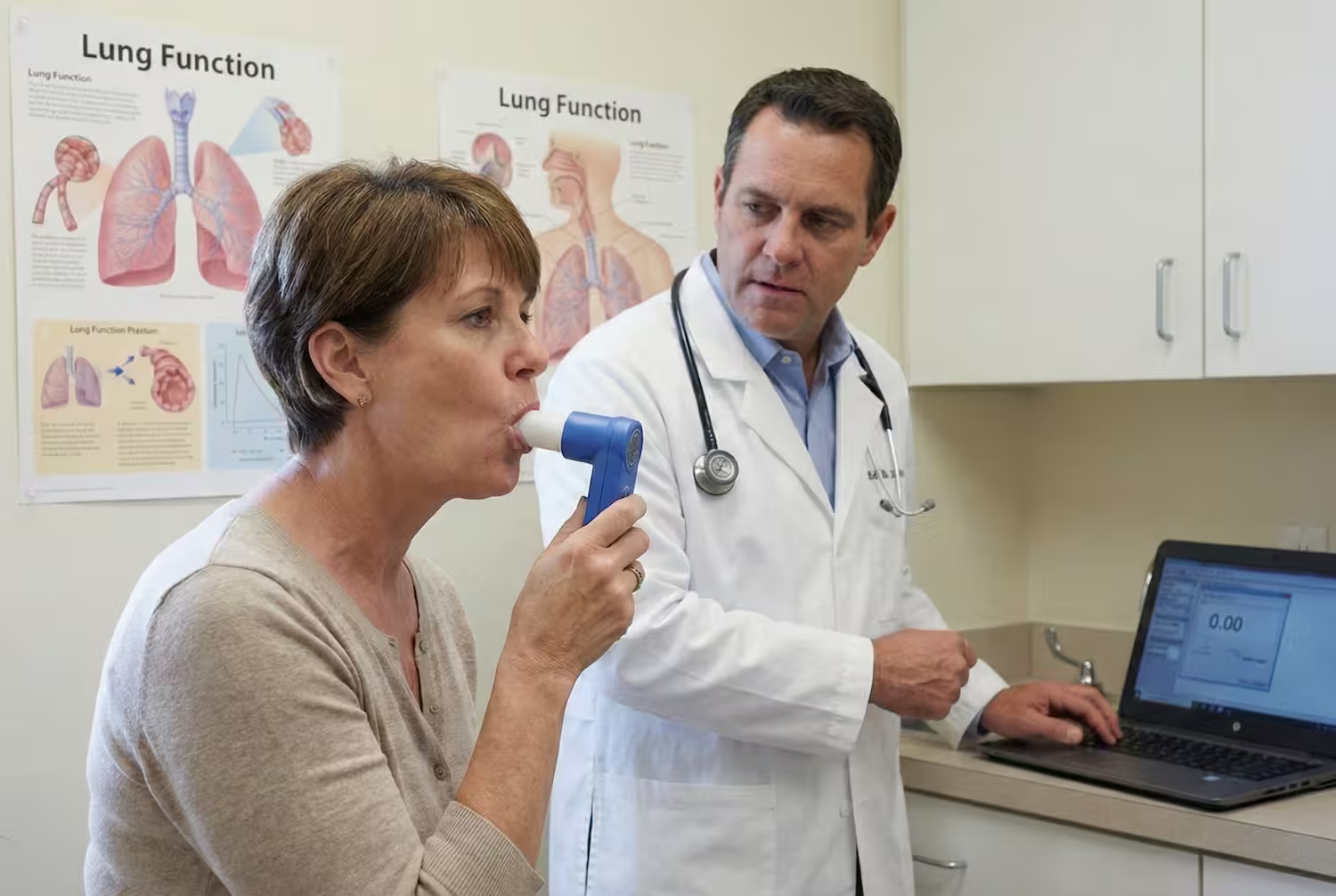
The heart plays a vital role within the body. It is solely responsible for pumping blood throughout your body, which helps deliver nutrients and gas exchange with the cells. Every bodily system relies on the heart to work effectively and to work continuously.
A key physiological process of the heart is that it contracts and relaxes to maximize the efficiency of your blood flow. When the heart is out of sync, it can cause a number of issues like arrhythmias, bradycardia, and tachycardia. When these issues are caused by faulty electrical signals in the heart, a pacemaker may be implanted.
Below is a closer look at what exactly a pacemaker is, when it may be necessary to get a pacemaker, and signs that could indicate the need for a pacemaker.
What Is a Pacemaker?
A pacemaker is a medical device that is implanted in the body and delivers electrical stimulation directly to the chamber of the heart. The small device is utilized to maintain a viable heart rhythm and ensure that the heart's contraction is productive. Pacemaker implantation is more common in the elderly, as many heart diseases tend to arise with increasing age.
The device consists of the main body, which acts as the pulse generator, electrical leads, and electrodes. The device body is typically placed right below the skin below the left collar bone and is considered the “brain” of the device. Depending the specific condition and electrical activity of the heart will determine the type of pacemaker utilized.
There are three main categories of pacemakers, and they are single chamber pacemakers, dual-chamber pacemakers, and biventricular pacemakers. The main difference between these pacemakers is the number of electrodes and where the electrodes are implanted. Some conditions only need an electrode in the sinoatrial (SA) node, which is located in the right atrium, while others may need to be placed elsewhere along the heart's conduction pathway. The sinus node tends to be more common as it is the origin of the heart's electrical conduction pathway.
What Does a Pacemaker Do?
The main job of a pacemaker is to provide electrical stimulation directly to the heart. This stimulation may be provided at a fixed rate to maintain a steady heart rhythm while other pacemakers are able to monitor the electrical impulses of the heart and only provide electrical stimulation when a problem with the heart’s electrical system is detected.
Many pacemakers today also have the ability to act as a defibrillator, which is a device that sends a shock to the heart to help restart a normal heart rhythm. Devices with this capability are referred to as implantable cardioverter defibrillators (ICDs) and may be implanted if an individual is at risk or has a history of sudden cardiac arrest.
When Might a Pacemaker Be Necessary?
Undergoing a pacemaker procedure can be risky — however, it can also be highly beneficial and necessary. Below is a closer look at some potential scenarios that could warrant the implantation of a pacemaker.
It is important to note that every situation is different, and each case requires a detailed review by a cardiologist. A healthcare professional trained in cardiology and a review of an electrocardiogram (EKG) is the only true means of determining the need for a pacemaker.
Slow Heartbeat
A slow heartbeat, also known as bradycardia, is characterized by a rate of heart contraction that is significantly below the average heart rate. To properly circulate blood throughout your body, the heart needs to push blood with enough force to provide adequate blood pressure, but it also needs a rate of heart contraction that ensures that blood is sufficiently circulating through the body.
If the rate of contractions is inadequate, it can lead to lightheadedness, chest pain, loss of consciousness, and fatigue. With bradycardia that cannot be managed through medications, a pacemaker may be implanted to help speed up the heart rate.
Fast or Irregular Heartbeat
An irregular heartbeat, such as atrial fibrillation, occurs when the electrical conduction pathway of the heart malfunctions. With a healthy heart, a specific coordination of the atrial and the ventricle heart muscles allows for sufficient cardiac output. Irregular heartbeats and heartbeats that occur too frequently (tachycardia) can reduce stroke volume and be detrimental to the movement of blood through the body.
To help regulate the contraction and relaxation of the heart chambers, a pacemaker may be implanted. With the pacemaker implanted, the device can help to coordinate a heartbeat that isn’t out of sync or going too quickly. A pacemaker can be particularly useful for heart conditions such as sick sinus syndrome, in which a faulty SA node contributes to tachycardia or even bradycardia.
After a Cardiac Event
Heart attacks are incredibly common in the United States. According to experts, every 40 seconds, an individual experiences a heart attack in the United States. Depending on the type of heart attack and severity, a cardiologist may recommend a pacemaker. More severe heart attacks can cause considerable damage to the heart, contribute to the development of heart failure, and place you at a higher risk of cardiac arrest.
Placing a device that has a pacemaker and ICD functionality can be useful if other means of supportive care are not conducive.
After Heart Surgery
Heart problems come in all shapes and sizes, and some of which require surgical intervention — like heart valve disease or coronary blockages. Heart surgery has inherent risks, one of which could be the development of an acquired heart block.
A heart block is a disruption of the movement of an electrical signal through the heart. This disruption can cause a signal to move slower than it should, while other forms of heart block cause significant and life-threatening disruptions. The implantation of a pacemaker may be needed in instances of high-grade heart blocks.
What Are the Signs You May Need a Pacemaker?
As stated previously, the only way to know for sure if you need a pacemaker is to get checked out by a cardiologist. With that being said, there are a number of general cardiovascular symptoms you should be aware of. Below is a closer look at a few of these signs.
Unexplained, Severe Tiredness
Unexplained fatigue could be an indication of a cardiovascular issue. Your body relies on a steady flow of blood to support the body and the brain, and when your body isn’t getting supplied optimal blood flow, it could present in the form of feeling tired and run down.
This symptom is not always an indication of an issue with the cardiovascular system but if it is paired with other symptoms like a slow heart rate, chest pain, or difficulty breathing, you should seek medical assistance.
Fainting Spells
Fainting can occur for a number of reasons and one of which could be an issue with the heart. In order for you to be conscious, the brain requires an immense amount of resources like glucose and oxygen, which are delivered through your blood. If your heart is not pumping effectively and is unable to keep up with the demands of the brain, it can cause a sudden loss of consciousness.
If you experience a loss of consciousness, you should seek medical attention immediately.
Persistent Heart Palpitations
Sporadic and infrequent heart palpitations can be normal, but they can also be a cause for concern if they become persistent and frequent in nature. Heart palpitations can cause you to feel like your heart is beating out of your chest or skipping a beat. Persistent and frequent heart palpitations could indicate an underlying condition and should be checked by a medical professional.
Shortness of Breath During Exercise
Shortness of breath can be a symptom of a number of conditions ranging from acute conditions like a myocardial infarction to chronic conditions like heart failure. The lungs and heart are closely tied to one another, and conditions that affect the heart can impact your ability to breathe.
If you experience unexplained shortness of breath, you should seek medical attention. If you have a chronic heart condition such as heart failure, shortness of breath can be common, and enrolling in a cardiac/pulmonary rehabilitation program like that provided by Carda Health may help to improve your quality of life.
The Bottom Line
A pacemaker and similar devices like an ICD are needed when an individual has a heart condition that impacts either the rate or rhythm of heart contraction. People with a fast heart rate, slow heart rate, irregular heart rhythm, or individuals with problems regarding the heart's conduction system may need a pacemaker to establish a healthy heartbeat.
Sources:
Pacemaker Types and Selection - StatPearls | NCBI
Implantable cardioverter-defibrillators (ICDs) | Mayo Clinic
Bradycardia: Slow Heart Rate | American Heart Association







